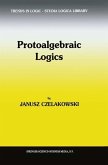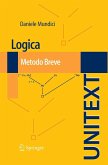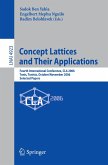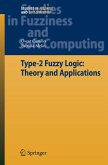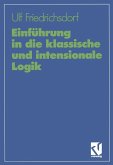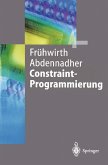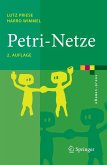Dieser Download kann aus rechtlichen Gründen nur mit Rechnungsadresse in A, B, BG, CY, CZ, D, DK, EW, E, FIN, F, GR, HR, H, IRL, I, LT, L, LR, M, NL, PL, P, R, S, SLO, SK ausgeliefert werden.
"This is a short introduction to mathematical logic that covers basic material in 17 chapters ... . The book is interspersed with several small references to various scholars involved in the development of logic, which provides for welcome interruptions in the formal exposition. ... An important aspect of the book is a veritable multitude of exercises. ... it is a very nice booklet that in view of this reviewer is an attractive choice for an introductory logic course for first year computer science students." (Krzysztof R. Apt, Theory and Practice of Logic Programming, Vol. 12 (3), 2012)
"The book contains all the necessary means to understand any advanced text in logic, including the subjects covering Gödel's incompleteness theorems. Although brief, this course seems to be an excellent introduction to modern mathematical logic, and, as such, we recommend it firstly to students of mathematics and computer science, and also to students of philosophy and linguistics ... . The author's beautiful, clear and approachable style makes this book also recommendable to a broader range of readers who are interested in modern trends in logic." (Branislav Boricic, Zentralblatt MATH, Vol. 1235, 2012)



